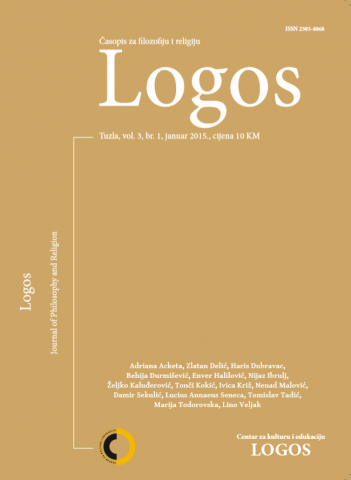FILOZOFIJA POVIJESTI ARNOLDA TOYNBEEJA
ARNOLD TOYNBEE’S PHILOSOPHY OF HISTORY BETWEEN ANTROPOCENTRISM AND THEOCENTRISM
Author(s): Behija DurmiševićSubject(s): Philosophy, Theology and Religion, Sociology of Religion, Philosophy of History
Published by: Logos – Centar za kulturu I edukaciju
Keywords: philosophy of history; theocentrism; anthropocentrism; civilization;
Summary/Abstract: Arnold Toynbee is one of the most important representatives of the modern philosophy of history. The importance of Toynbee’s philosophy is in his theory of civilisations as units of historical examination, the categories of geneses, growths, breakdowns and disintegrations. An important aspect of his study is also Toynbee’s shift in understanding historical processes. In this shift, new parts are evident, those representing Toynbee’s study with new qualitative experience, the experience of conversion and cognition of God in the world. Of great significance in the author’s study is the criticism of Eurocentric models of thought, as well as his interpretation of relation between the Western civilisation and religion. Through these, Toynbee elaborates the idea of intellectual revolt against the egocentrism of the West. By identifying the crisis of the contemporary times and its self-understanding, Toynbee has reshaped the universalist philosophy of history, whose important trait is the openness towards different civilisations, cultures and religions.
Journal: Logos – časopis za filozofiju i religiju
- Issue Year: 3/2015
- Issue No: 1
- Page Range: 85-102
- Page Count: 18
- Language: Bosnian

